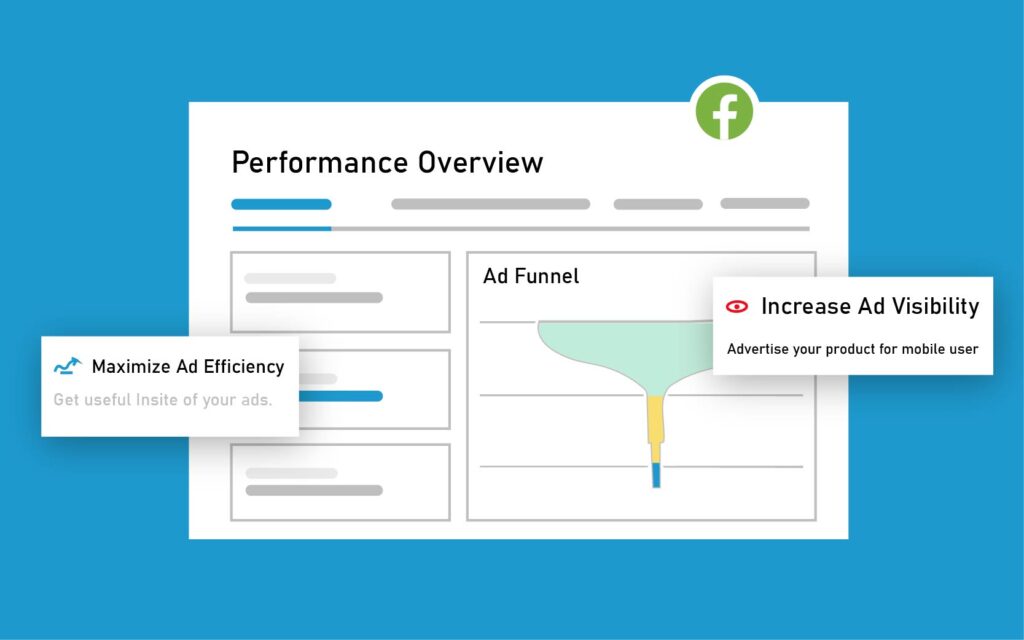
LinkedIn Client Hunting Course in Mohakhali
LinkedIn is more than just a platform for networking; it’s a powerful tool for finding

If you want my team to manage your good marketing for you, click here
This guide provides important insights into the Facebook Marketing Course in Khilkhet. Individuals looking to enhance their digital marketing skills will find structured learning opportunities designed to equip them with the necessary tools for effective social media campaigns. Participants will probe into the intricacies of audience targeting, content creation, and analytics, ensuring they are well-versed in leveraging Facebook’s advertising potential. By the end of the course, they will be prepared to elevate their marketing strategies and drive business growth through informed Facebook marketing practices.
Your understanding of Facebook marketing strategies is vital for effective promotion. Below are different approaches marketers can adopt:
Knowing how to strategically implement these approaches can significantly enhance a brand’s presence on Facebook.
| Type | Description |
|---|---|
| Content Marketing | Create and share valuable content to engage the audience. |
| Influencer Marketing | Partner with popular figures to reach wider audiences. |
| Community Engagement | Interact with followers to build loyalty. |
| Retargeting Ads | Target previous website visitors with relevant ads. |
| Lead Generation Campaigns | Collect potential customer information for future marketing. |
To effectively leverage organic marketing on Facebook, a consistent posting schedule and high-quality content are imperative. Engaging with followers through comments and messages further builds a strong community. The emphasis should be on authenticity and value, which can organically boost visibility and engagement over time.
Some marketers may choose paid advertising on Facebook to reach a larger, targeted audience. This approach allows for specific demographic targeting, which can enhance ad visibility and effectiveness.
For instance, through Facebook Ads, she can set specific parameters such as age, location, and interests, allowing for tailored campaigns. They can also utilize A/B testing to measure performance and optimize their ads accordingly. Furthermore, the ability to track results in real-time provides invaluable insights, helping marketers refine their strategies for maximum impact.
Even in today’s digital landscape, several key factors determine the success of Facebook marketing. Marketers need to focus on the following elements:
Knowing these factors can significantly enhance the effectiveness of their Facebook marketing strategies.
Clearly defining the target audience is vital for effective Facebook marketing. She should comprehend demographics, interests, and online behavior to craft tailored messages that resonate with potential customers.
There’s no doubt that a strong content strategy underpins successful Facebook marketing campaigns. He should prioritize diverse content types, like images, videos, and polls, to maintain audience interest.
Strategy is vital when it comes to content planning. They must develop a mix of promotional and organic posts, ensuring a robust brand presence while engaging users meaningfully. Additionally, incorporating user-generated content and timely trends can significantly bolster interactions. By understanding what types of content resonate best, marketers can refine their approach and foster deeper connections with their audience.
One of the best ways to leverage social media for business growth is through Facebook marketing. This guide outlines vital steps to effectively utilize the platform, ensuring marketers can optimize their strategies and reach a wider audience. The following table provides a structured approach to Facebook marketing:
Steps to Facebook Marketing
| Step | Description |
|---|---|
| 1 | Setting Up a Business Page |
| 2 | Creating Effective Ad Campaigns |
| 3 | Engaging with Customers |
Now, establishing a professional business page on Facebook is the foundation of any marketing effort. This process involves selecting a business category, entering relevant information, and uploading engaging visuals that represent the brand. Consistency in branding helps in creating a recognizable online presence.
You will want to ensure that any ad campaigns are well-targeted and visually appealing. Effective campaigns focus on clear objectives and utilize Facebook’s advanced targeting tools to reach specific audiences. Marketers should monitor their ad performance and adjust strategies accordingly.
It is vital to craft a compelling message within the ad that resonates with the target audience. A/B testing can also be beneficial, allowing marketers to experiment with various visuals and calls-to-action to determine what garners the best engagement. Budget management and performance analysis play significant roles in maximizing the return on investment for ad campaigns on Facebook.

Now, individuals looking to enhance their Facebook marketing strategy should consider a few key tips to maximize their efforts. These include:
This approach fosters a better connection with audiences and promotes brand growth.
Marketing experts emphasize the importance of optimizing engagement tactics on Facebook to build a loyal customer base. They suggest using eye-catching visuals, asking questions to spark conversations, and promoting user-generated content. Crafting compelling captions can also enable deeper connections and drive interactions.
Now, leveraging insights and analytics can significantly improve Facebook marketing efforts. They provide vital information about audience behavior, allowing marketers to refine their strategies and enhance performance.
For instance, utilizing Facebook Insights allows marketers to track metrics such as post reach, engagement rates, and demographic information. By analyzing this data, they can identify which types of content resonate most with their audience. They can then tailor future posts and campaigns accordingly to optimize their marketing efforts and achieve higher success rates.
Not everything about Facebook marketing is perfect. Businesses should consider the potential benefits alongside the drawbacks to make informed decisions. The following table illustrates the pros and cons of utilizing Facebook for marketing purposes:
Pros and Cons of Facebook Marketing
| Pros | Cons |
|---|---|
| Wide reach and audience targeting | High competition |
| Cost-effective advertising | Algorithm changes can affect visibility |
| Tools for engagement and interaction | Time-consuming management |
| Analytics and insights for improvement | Dependent on platform policies |
| Flexibility in content types | Pacing for organic reach can be slow |
Even though challenges exist, the advantages of Facebook marketing often outweigh them. Businesses can utilize the platform’s vast reach to effectively target specific demographics. The cost-effective nature of Facebook ads allows for a flexible advertising budget, and the available tools enable meaningful engagement with customers. Additionally, the insightful analytics provided by Facebook equips businesses with the information needed to continuously improve their marketing strategies.
For businesses, understanding the challenges and limitations of Facebook marketing is vital. The high level of competition can make it difficult for individual brands to stand out, and frequent algorithm changes can impact visibility in users’ feeds. Furthermore, managing Facebook marketing can become time-consuming, requiring regular updates and interactions. Dependence on Facebook’s platform policies can also pose risks to a brand’s strategy, especially if these policies change unexpectedly.
Prospective marketers should bear in mind that navigating Facebook’s complexities can be challenging. They might face issues like the need for continuous engagement to maintain visibility and the risk of algorithm updates that can suddenly diminish their reach. Moreover, they may need to strategically plan their campaigns to effectively compete with similar businesses. Understanding these limitations allows marketers to create proactive strategies that minimize potential setbacks.
Upon reflecting, attendees of the Facebook Marketing Course in Khilkhet have found it to be an invaluable resource for mastering digital marketing techniques. They have gained insights into effective strategies for leveraging Facebook’s vast user base to enhance brand visibility and engagement. By acquiring practical skills and knowledge, participants are empowered to implement impactful campaigns that resonate with their target audience. This course positions them to navigate the complexities of social media marketing with confidence and professionalism, ultimately contributing to their business success.
It is really a win-win situation 😲 for you to join the “Digital Wit Academy” Facebook group and gain the most updated information about different digital marketing strategies.

Kamrul Hassan is the founder and CEO of Digital Wit Academy. As you know, Digital Wit Academy is a fast-growing Bangla e-learning platform that provides quality knowledge and support to students. Kamrul Hassan is a government-certified Professional Digital Marketing Expert and a trainer/mentor in the Youth and sports ministry projects of the BD government. His Team Digital Wit Academy consists of well-educated and highly motivated core team members who are very friendly. They believe in quality support to make the students’ careers more successful. Support is the best part of the Digital Wit Academy courses.

Stop wasting money and unlock the hidden potential of your advertising skills with Digital Wit Academy.

LinkedIn is more than just a platform for networking; it’s a powerful tool for finding

Most professionals are aware of LinkedIn’s potential as a powerful tool for networking and client

Course participants will discover the art of leveraging LinkedIn client hunting to attract effectively. In

With the rise of digital networking, mastering LinkedIn for client acquisition has never been more

There’s an exciting opportunity for professionals seeking to enhance their networking skills through my LinkedIn
Hey, I’m Kamrul Hassan, the mastermind of Digital Wit. I’m confident to grow your brand. My only question is, will you grab the opportunity?